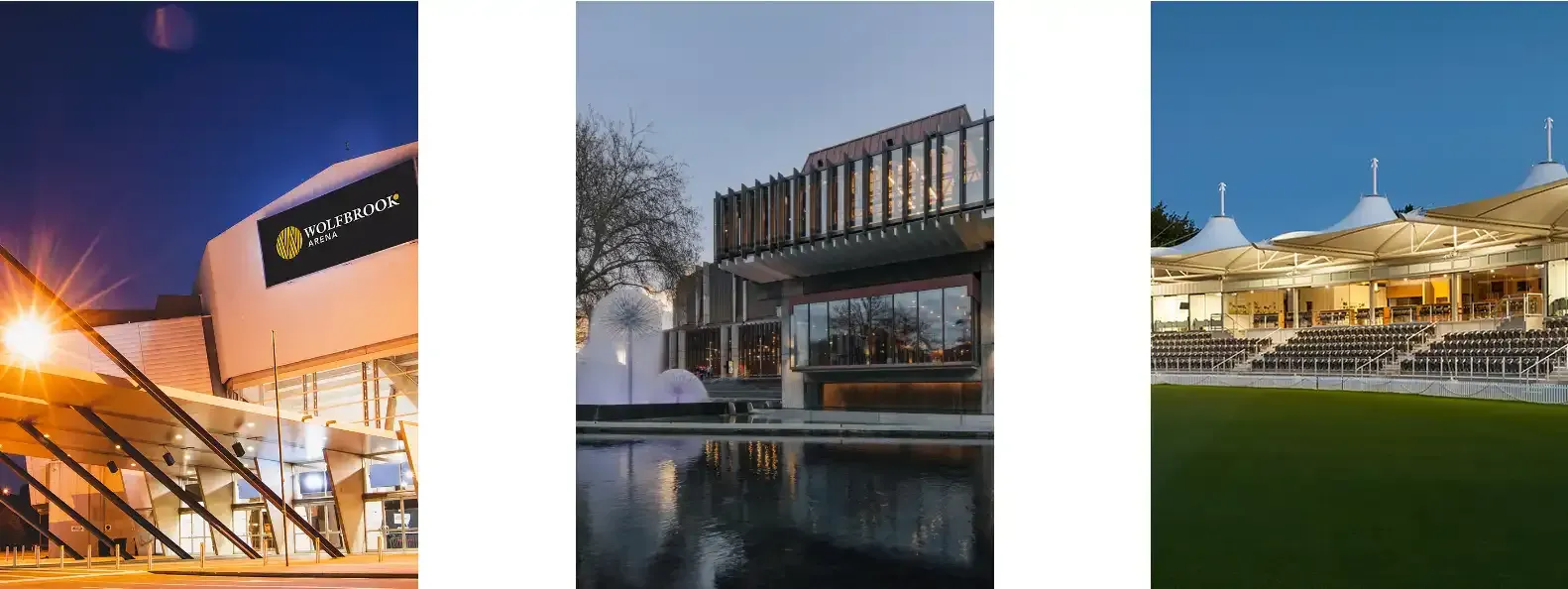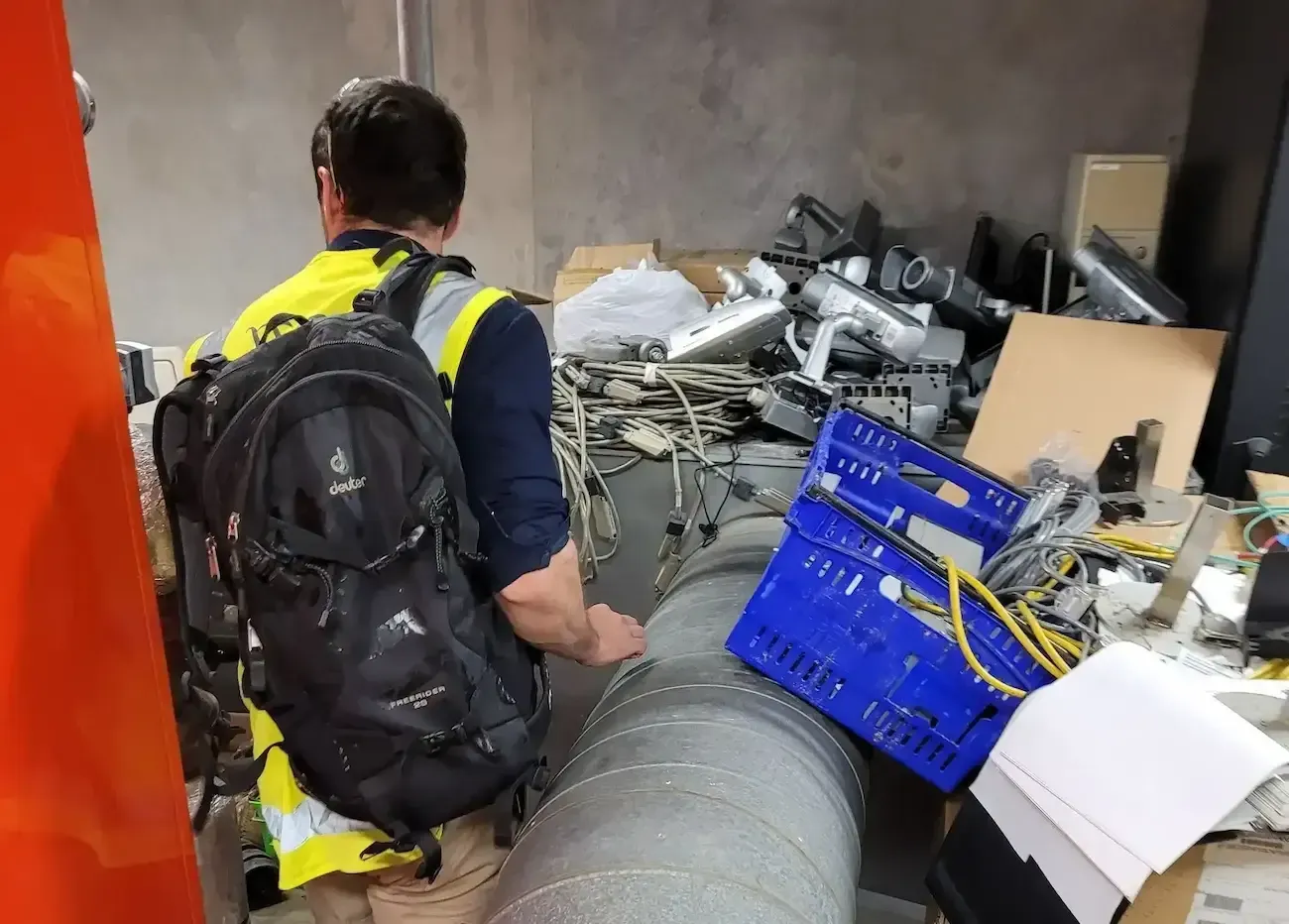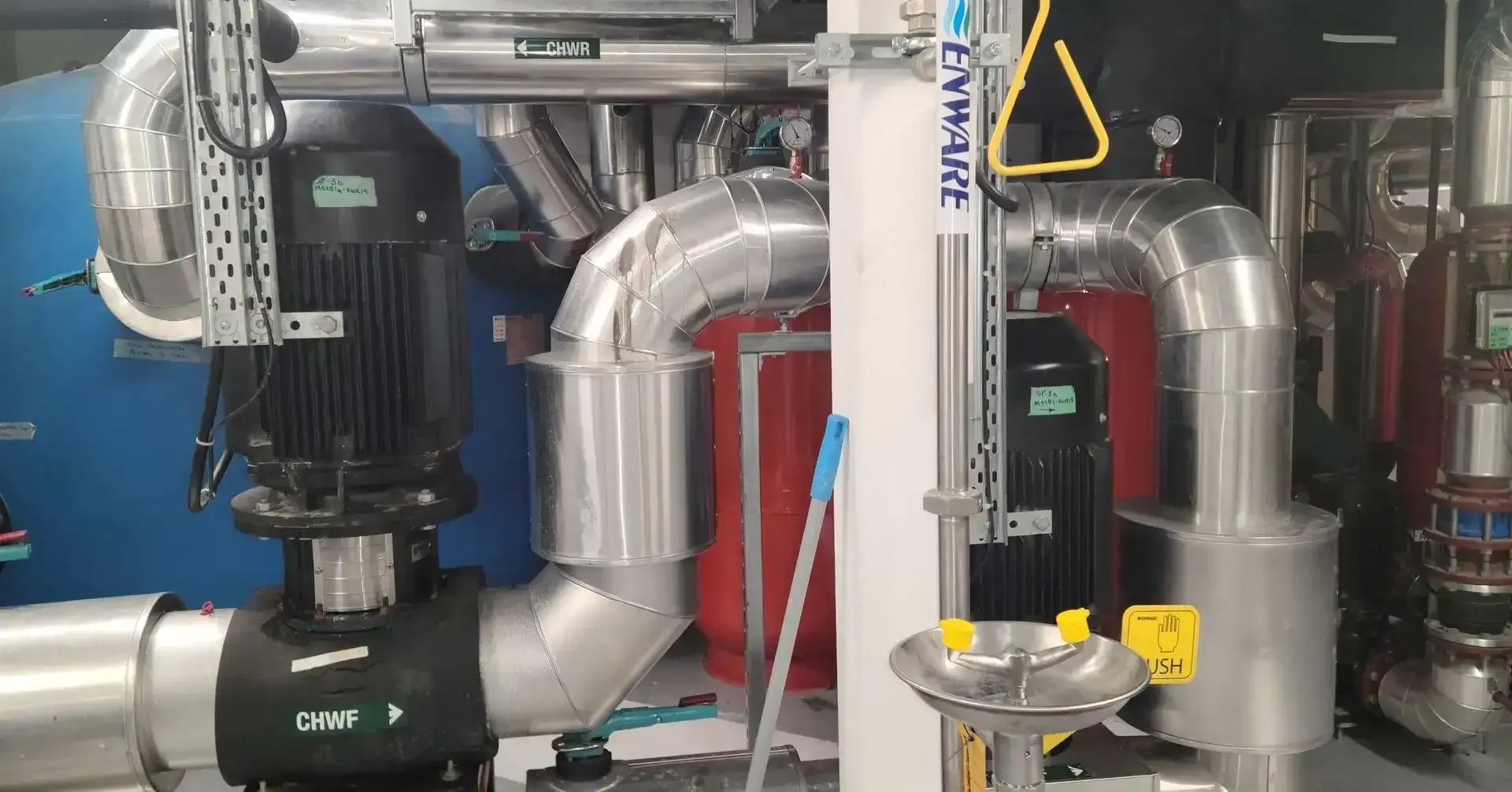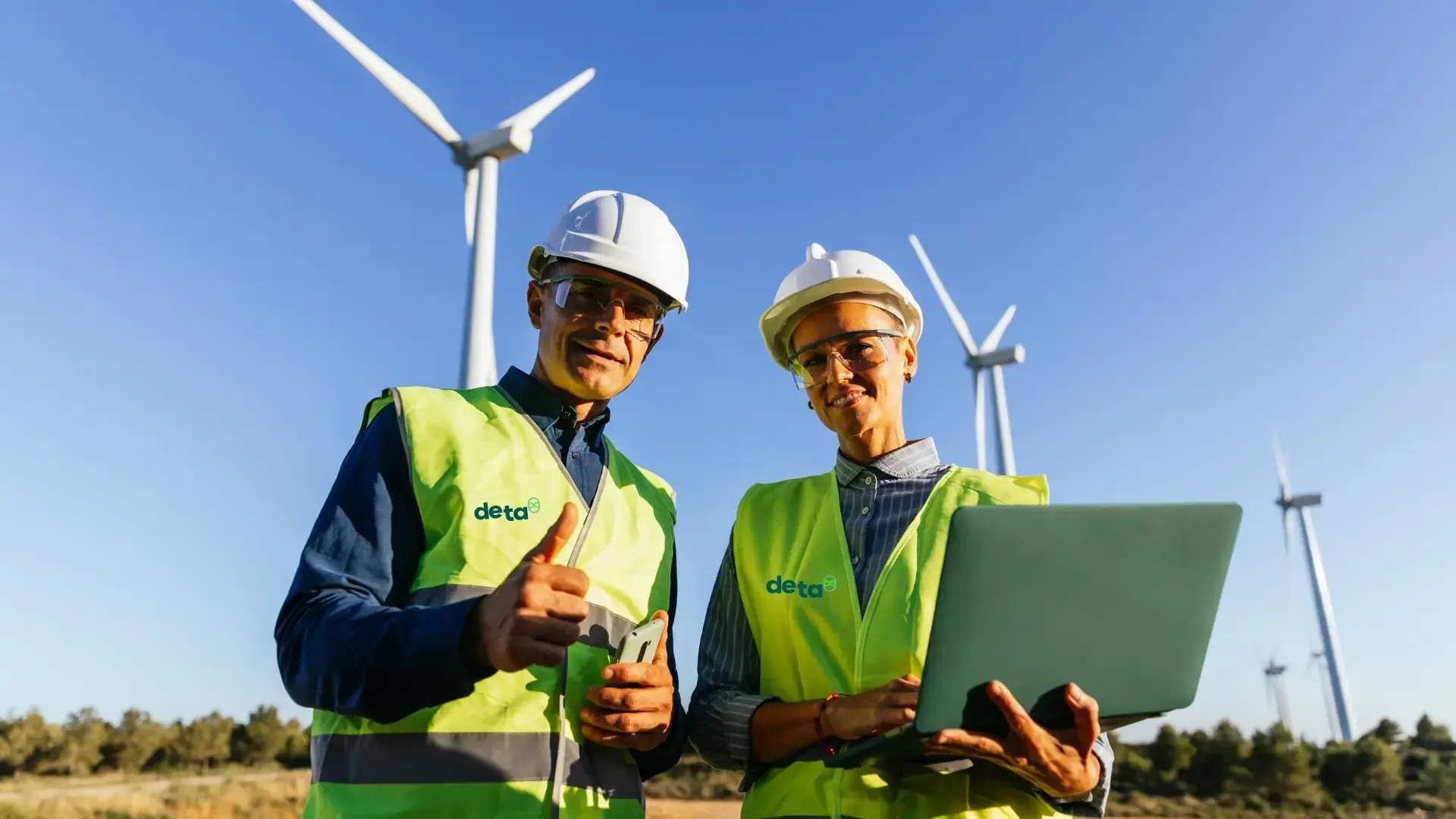Sustainability Strategy Roadmap led by DETA – Venues Ōtautahi
DETA & Venues Ōtautahi - working for sustainable action
Venues Ōtautahi are responsible for operating sports and hospitality venues in Ōtautahi, Christchurch, this includes Wolfbrook Arena, Hagley Oval, Christchurch Town Hall, Air Force Museum of New Zealand and Apollo Projects Stadium. Venues Ōtautahi asked DETA to develop their Sustainability Roadmap to quantify their current efforts and integrate sustainability plans across all their venues. The objective was to gain insights into impacts of their business operations and kickstart their sustainability journey.
The Sustainability Strategy Roadmap is a new product offered by DETA. This Roadmap analyses a business's operations with carbon, water and waste lenses. The roadmap identifies sustainable project opportunities and actions that will contribute to;
- Reducing their carbon footprint
- Finding energy efficiency and management opportunities
- Integrating social and staff improvements across the organisation
- Improving engagement with supply chain to reduce emissions, and environmental performance
- Water and waste reduction actions

The project was broken up into three primary deliverables.
The DETA team began by delivering an interactive workshop with staff from all five venues. To be able to supply a relevant and implementable Roadmap DETA needed a comprehensive understanding of Venues Ōtautahi’s assets and organisational structure. Next the quantification phase began, involving a Carbon Footprint assessment of emissions on a per site basis. Operating processes were analysed to identify emission ‘hotspots’ and potential reduction initiatives. DETA then delivered the Sustainability Roadmap providing valuable insights and analyses of Venues Ōtuatahi’s opportunities to take sustainable action in the areas of waste, water and carbon reduction.
This delivery involved:
A comprehensive report - detailing the carbon emissions baseline of Venues Ōtautahi
Specific recommendations - for efficiency improvements in waste, water and carbon spheres at all operational levels
Sustainability Roadmap - outlining the steps, actions, and timeline for establishing enhanced sustainability at Venues Ōtautahi

The project delivery phase presented some unique challenges to the DETA team. Due to the variety of buildings and range of events Venues Ōtautahi was responsible for, crafting applicable solutions for all the sites was a challenge. Despite this, the DETA delivery team found innovative solutions that captured the essence of operations at all the sites and delivered tailored plans for each venue.

The Venues Ōtautahi team was engaged and committed to implementing sustainability initiatives across the board". Says Joshua Russ DETA Project Engineer. "They were willing to challenge conventional thinking, recognising sustainable business practices are imperative for shaping their future. Despite the relatively unchartered landscape of organisational sustainability, we were able to provide innovative solutions that addressed Venue Ōtautahi’s challenges in the three key areas, water, waste and carbon, giving them a plan with tangible actions for them to make a real sustainable impact.

The final report provided clear data, recommendations and a comprehensive Roadmap for integrating sustainable practices across various aspects of the organisation. The process also enhanced engagement with sustainability initiatives throughout Venues Ōtautahi’s organisation providing shared goals and clear projects to partake in.

Venues Ōtautahi were doing so much good work already – having a local supply chain, recycling waste at events – and they really needed help to quantify the success, and show how to move things forward”. Explains Jeff Smit DETA Director. “DETA’s brought an analytical approach to the sustainability strategy, making potential savings, and costs, very real and helping not only tell the story of what has been done, but also what needs to happen to remain at the forefront of sustainable event management. And as a Christchurch local, I'm really pleased to know that the next concert, rugby game, or sailing event I attend will be lower carbon, lower waste, and more resource efficient overall."
Having a clear sustainability strategy is imperative for organisations today, and working with experienced sustainability consultants can help drive competitive advantages and deliver significant cost savings. By DETA completing a Carbon Footprint Assessment and delivering a comprehensive Sustainability Report, Venues Ōtautahi now have a snapshot of their organisation footprint and can position themselves as sustainability leaders in the Canterbury community.
The DETA team were able to identify Carbon savings of 500 tCO2e/year which is a 71.9% reduction from current emissions.
By partnering with businesses such as Venues Ōtautahi that have a commitment to incorporating sustainable practices into fundamental frameworks of their organisation, DETA can strive to obtain our strategic goal of removing 2 million tCO2 emissions every year by 2030. DETA can offer the necessary support to initiate your decarbonisation journey.





